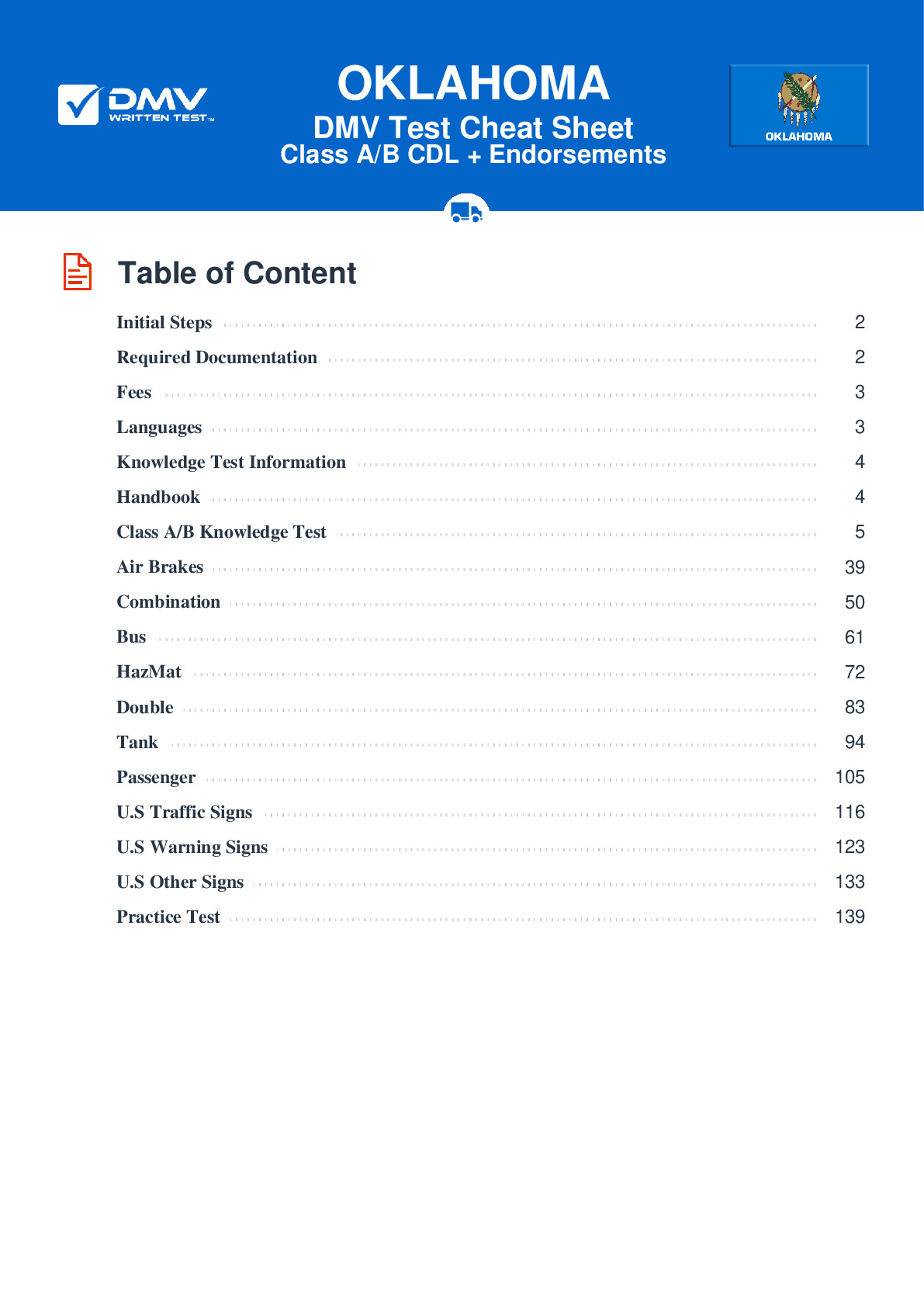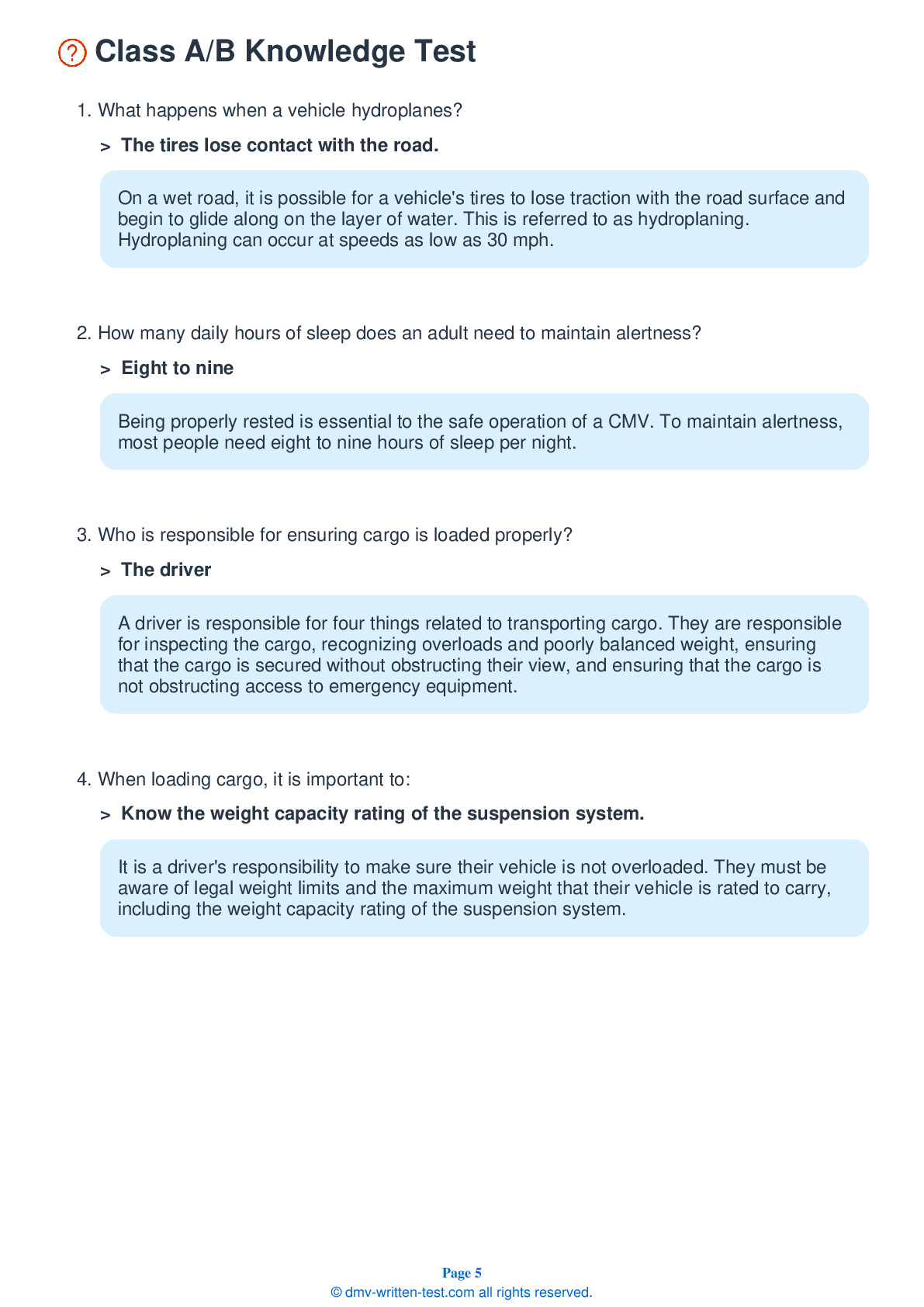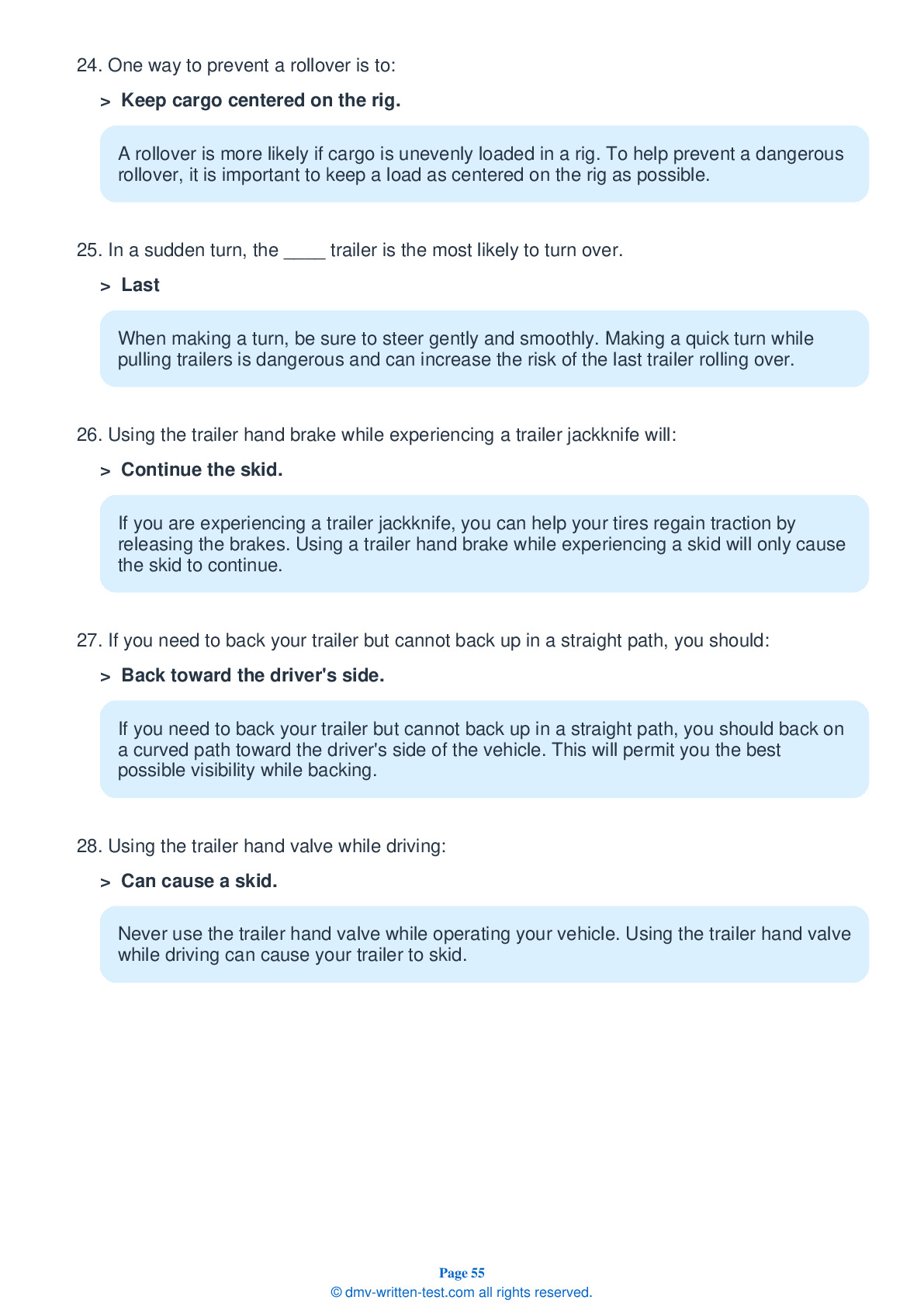Combination
All applicants who are applying for a Class A CDL should be prepared to take the Combination test. This test covers information found in Section 6 of the Commercial Driver License Manual. Section 6 provides the information needed to safely operate tractor-trailers, doubles, triples, and straight trucks with trailers. The test is made up of 20 multiple-choice questions, and applicants will need to correctly answer a minimum of 16 questions to pass. The Combination test is not a replacement for the Double/Triple endorsement test.
Number of Question
Passing Score
8. When driving with trailers, you should:
Explanation
To reduce the risk of tipping over when driving with a trailer, you should steer gently and smoothly. Avoid making sudden movements.
9. A trolley valve:
Explanation
The trailer hand valve (also referred to as the trolley valve or Johnson bar) is a mechanism that works the trailer brakes. It should only be used to test the brakes. Using it while the vehicle is being driven could cause a skid. Never use the trailer hand valve while parking because doing so may release the air pressure from the braking system, releasing the brakes that are holding the vehicle in place.
10. In a double or triple combination, the ____ trailer should be directly behind the cab.
Explanation
When positioning trailers in a combination, the most heavily-loaded trailer should be the closest to the tractor. The lightest trailer should be positioned in the rear.
11. To help prevent a rollover, cargo should be:
Explanation
If a vehicle is top-heavy, it is more likely to roll over. The weight of cargo should be positioned as low in a trailer as possible to minimize this risk.
12. When braking with ABS, you should:
Explanation
When operating a vehicle with an Anti-Lock Braking System (ABS), you should apply your brakes in the same manner as you would if operating a vehicle without ABS.
13. What does an Anti-Lock Braking System (ABS) do?
Explanation
An Anti-Lock Braking System (ABS) helps prevent wheel lockup during hard braking. If ABS detects impending lockup, it reduces braking pressure to a safe level.
14. During a trip, the ____ should be open.
Explanation




